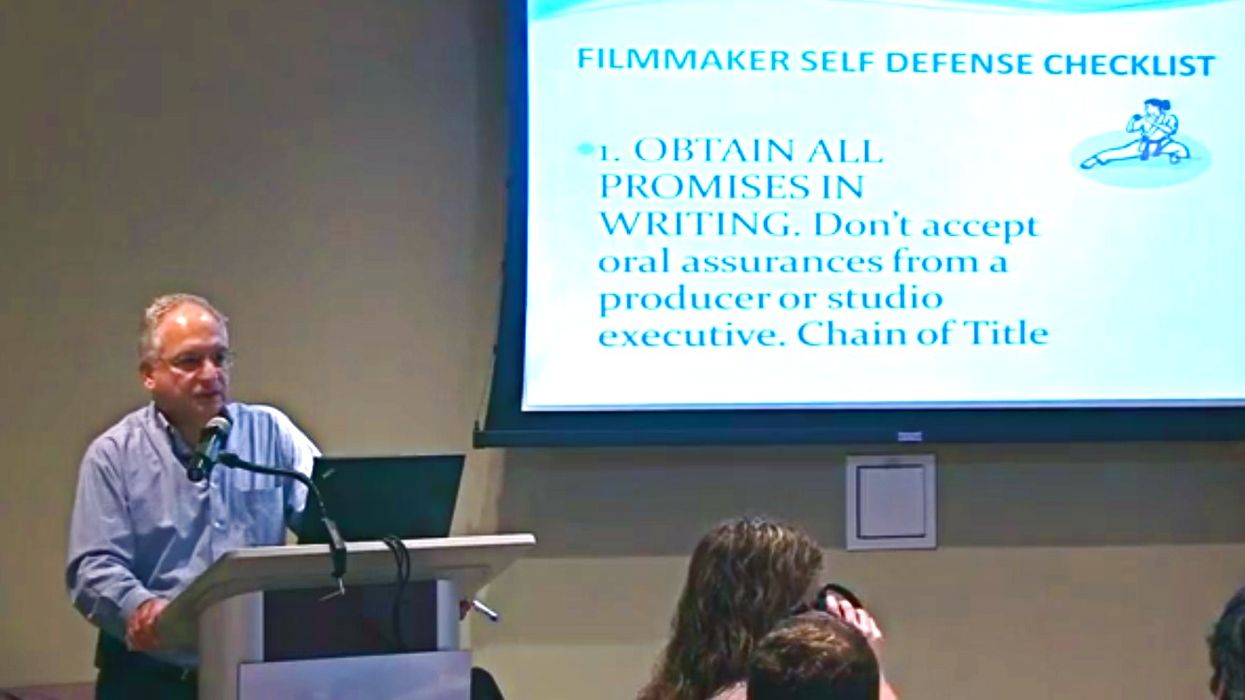3 Must-Haves to Get Your Film Distributed

Even though we wax poetic about how rewarding the art of filmmaking can be, at the end of the day, we need audiences to see the finished product. They don't have to rabidly declare it their favorite film (though that would be nice), but there's really no point spending all this time and money on a feature if the only person who owns the DVD is your mom. In a series of videos posted by IFP from Mark Litwak, the entertaining Entertainment Lawyer explains how to prepare yourself for the do-or-die of distribution.
First, the good news: the biz is democratic. Says Litwak:
The great thing about the movie business is that it's inherently democratic. The established players have never been able to corner the market on the essential commodity that you're selling: a good story.
Now, the bad news: filmmaking is a high risk business. In a different industry -- like real estate -- if you buy a house and it burns down, well, you're not at a total loss because you still have the land. But with filmmaking, Litwak points out, if nobody distributes your film or wants to see it, you're at 100% loss. So what can you do to give yourself the best odds in this crapshoot?
1. E&O Insurance
Litwak says to get everything in writing so you can get E&O insurance. Without it, you will not get distribution. We've talked about this for doc filmmakers with Brian Frye of Our Nixon, but Litwak points out it's an essential "malpractice insurance" for all filmmakers.
2. Film Festivals
Understand the main point of festivals: publicity. Got a publicist? Litwak explains how festivals are essential dealmakers for distributors even though, as he points out in my favorite quote, festival audiences are generally not representative of "the average beerguzzling filmgoer who wants to buy a box of bullets with that DVD."
3. Film Markets
Be prepared to find out that essential film markets are not like art galleries (how we think our work should be presented), but more like the distribution version of that TV show Supermarket Sweep:
If you are making a movie and want to make sure your chances of getting distribution are as high as they can be, check out the rest of the playlist below (thanks to IFP for putting it on their channel):
What do you think about the good news/bad news of a film's success being dependent on distribution? Do you think alternative forms of distribution changing the risk equation at all?
Links:
- Mark Litwak
- IFP: Dealing With the Legal Woes: Advice from Entertainment Attorney Mark Litwak











